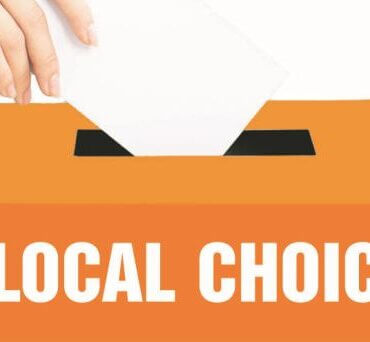
Local Choice
Journalism is sometimes referred to as ‘the fourth estate’ because of the power of the press to balance the power of the government, the police, and the wealthy.*

Andrew Bydder
The news media kept the people informed, which is the vital foundation of democracy. Bob Woodward, the journalist who broke the Watergate scandal, popularised the phrase “Democracy dies in darkness”, which elegantly expresses the importance of exposing political machinations to public view.
Yet many of New Zealand’s councils are obscuring their work behind every-increasing smoke screens. The fastest growing departments over the last decade have been Communications teams, aka Spin Doctors, the people who think renaming judder bars as ‘safety cushions’ will reduce public resistance to the jarring impact on your car’s suspension and your back. I have been in meetings where councillors ask the comms staff to “massage the story”, not to inform people, but “to bring them along the journey”, i.e. get the desired predetermined outcome.

Local Government Elections 2025
To ensure council is working for you and not for the few, we need to counteract this with greater transparency. I am therefore asking all council candidates to commit to a Transparency Policy prior to the election, to allow journalists to independently communicate with the public, and to encourage informed debate outside council.
The policy is pretty simple.
Accredited journalists with a presence in the local community shall have access to the same information, at the same time, with the same responsibilities, as councillors. The local public shall be deemed the appropriate authority on council matters.
The access means journalists will be able to attend workshops and public-excluded meetings that they are currently barred from. They will receive the agendas, reports, and meeting minutes just as councillors do. Nothing is hidden.

A Waipa District Council meeting during the public part. Photo: Mary Anne Gill
The journalists will have the same restrictions as councillors on using this information, such as for personal gain, and the same responsibilities to maintain confidentiality where legally required, such as under the Privacy Act, or commercially sensitive negotiations. After contracts are signed, such information should be made available.
The accreditation is simply to ensure journalistic integrity in accordance with industry ethics, and the local presence is to ensure journalists act in the interests of the community. It is not intended to create a gossip column to disparage individual councillors, rather to support the factual dissemination of important matters to an interested public. Political bias is not a consideration for controlling accreditation, so free speech and opinions are protected. Citizen journalists and alternative media with a track record will be accepted alongside media companies.
The local public being deemed as the appropriate authority is to allow certain actions under the Protection of Whistleblowers Act. This gives the journalists protection to go public on serious matters that the council may wish to keep secret. It shifts the balance of power back to the people.
I have personally been the subject of media exposure and criticism. I stand by my actions, and I stand by the right of the public to challenge them. I expect all council candidates to do the same, so I ask the candidates to confirm a commitment to implementing this policy to rebuild trust in our councils.
To anyone who wonders if this is really worth bothering about, I refer to the recent case of Queenstown Lakes District Councillor Niki Gladding. In March 2025, she released confidential information about the council’s plan to dump 12,000 tons of sewage per day into the Shotover river. The council responded by stripping her of important committee roles. Gladding rightly stated “Ultimately my responsibility is not to the organisation or the councillors, but to the people who elected me in, it’s to the community.”
*To be pedantic, the other estates originally were the nobility, clergy, and commoners, but times have changed.
- What do you think? Email us [email protected]
- Andrew Bydder is a Hamilton city councillor who is standing for both Hamilton and Waipā councils at this year’s local body elections.








